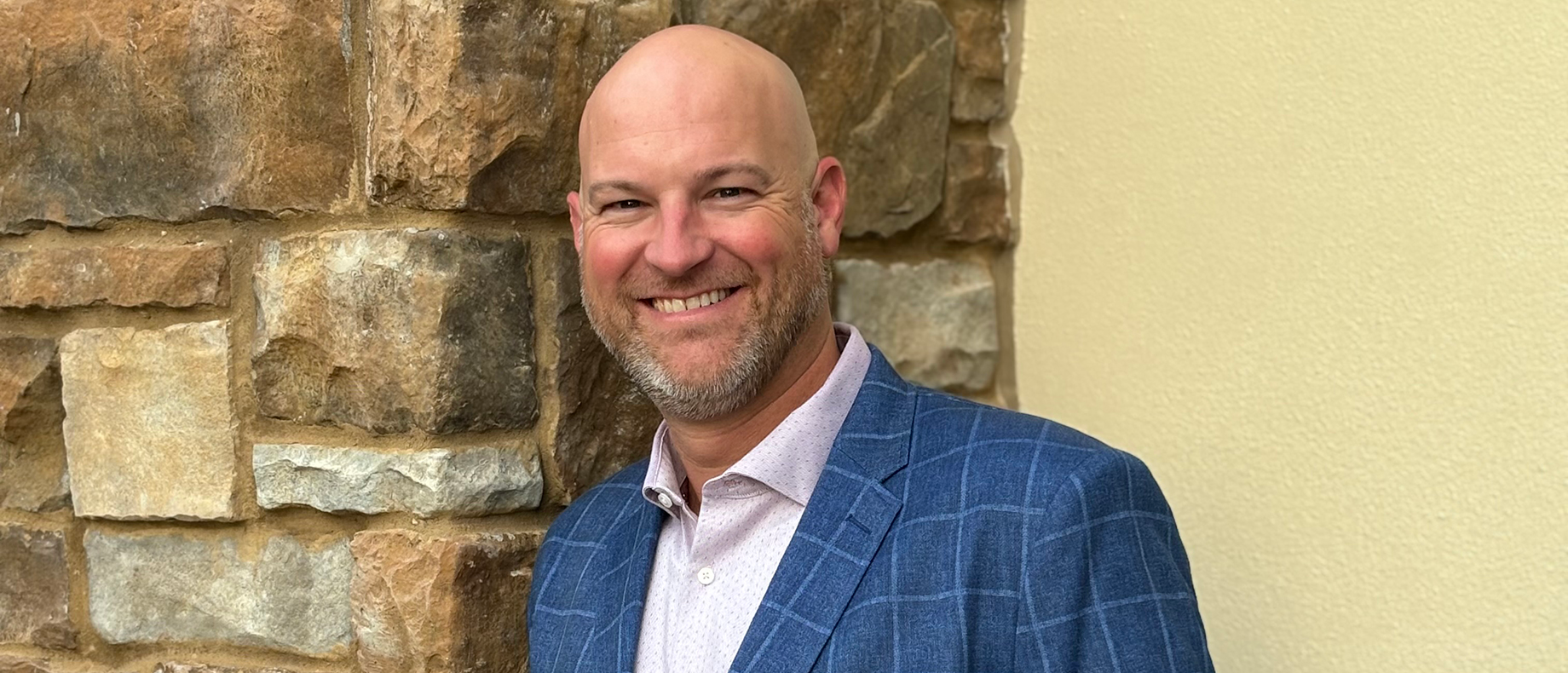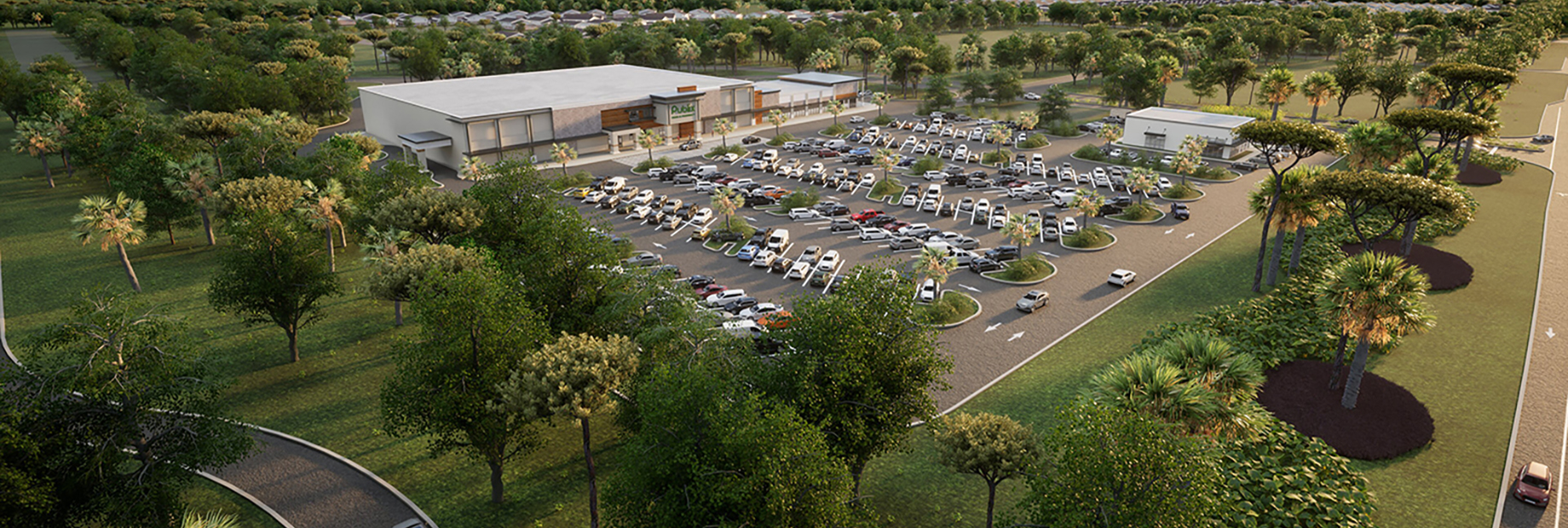The proliferation of medical uses in shopping centers over the past several years has been widespread. But a medical tenant transitioning to shopping center developer? That’s a rarity indeed and why the history and success of WMG Development — a real estate investment firm and developer with offices in Effingham, Illinois, and Winter Garden, Florida — is so compelling.
Dr. Rick Workman planted WMG Development’s seeds in the mid-1990s when he launched a real estate company to foster the expansion of Heartland Dental, his fledgling dental support organization. In 2011, Workman brought in Curtis Frost to purchase sites and advance development of Heartland Dental clinics in retail settings, a novel concept at the time. As the group gained experience, it became apparent that WMG could provide development services to a broader mix of users.
The expanded approach met with success. WMG Development, which split off in 2016, today owns 215 properties, ranging from single-tenant buildings to grocery-anchored centers. Since 2019 , the firm has invested $795 million into development.
Frost — who is CEO of WMG and of Workman Management Group, a family office — discussed the company’s growth and his real estate career path with Commerce + Communities Today contributing editor Joe Gose.

How did you get interested in real estate?
I grew up in a little town in downstate Illinois, and my folks owned grocery stores. At five years old, I went to kindergarten for half a day, then walked across the street and did little jobs like facing shelves for the store manager. I got an engineering degree in college, but I didn’t really like being an engineer. I like to move around and am a little bit more active. In 2005, I became the CFO of a family-owned agriculture company, and it accelerated my understanding of business. We were doing a lot of land transactions. Then the family started diversifying. We developed a Subway restaurant and pursued multiple residential projects. The business was eventually sold, and I was out of a job. An accountant I worked with who was a high school classmate of Dr. Workman, said that I should meet him.
Take us through your early days working with Heartland Dental and building WMG into what it is today.
When I arrived in 2011, it was difficult to get developers and real estate folks on board with what we were doing. The assets hadn’t sold in the market, and [the developers and potential investors] didn’t know what a cap rate would be on an exit, so they didn’t want to take the risk. And they weren’t sure why a dental office would want to be in a retail setting. But, we knew the business and believed in it, and Dr. Workman and the real estate company planned to hold the assets for quite some time. So we thought: “If we’re going to do this, we need to do it on our own."
Your stint with WMG Development began after the financial crisis and recession had passed, yet certain sectors of real estate continued to experience residual distress. How did you navigate those times?
One of the biggest things that we did in those early days was to partner with banks to buy their distressed assets, predominantly bank branch buildings, for conversion into Heartland Dentals. But depending on the initial cost, in some cases, we would look to build additional space and do a two-tenant building. Between 2011 and 2015, we did 10 deals with banks, and over the next few years, that activity really picked up steam. Even though the distress had moderated, banks wanted underperforming locations and land that they had acquired for growth off their balance sheets. Since we were internally capitalized and didn’t have any financing contingencies, we were known as someone who could close. Everyone who had been stung by the financial crisis was looking for certainty of execution. We were able to provide that, along with speed.
The strategy ultimately forced us to creatively solve problems, and that’s when other opportunities started to pop up. We would see five sites we wanted for Heartland, but to get them, a bank would want us to take five additional sites and we’d have to figure out what to do with those. They were typically good footprints, 3,000 to 4,000 square feet, and that’s how we picked up a building to do our first Aldi. I realized that with our experience of thinking from a tenant’s perspective, we were actually very good developers. We started bringing in other brands to partner with, like, Chipotle Mexican Grill, Starbucks, Publix and Panera.
Around 2018 or 2019, we brought in new team members who had experience with grocery-anchored shopping center development and other big projects. We expanded into mixed-use centers and multifamily. Ten years ago, we may not have thought those types of deals were possible, but by thinking about one customer at a time and focusing on what’s best for a community in terms of determining the long-term use of a site, we’ve built a brand where I don’t think for one minute there’s a project that we couldn’t pull off. And as a preferred developer for Heartland Dental, we continue to deliver about 50% of its openings.
What are your annual development goals?
We like to stabilize about $200 million to $250 million of investment each year. About half of that is freestanding projects and the other half is a mix of grocery-anchored centers and properties that we have acquired. For instance, last year we bought an office building in Sarasota, Florida, that we’re looking to convert into residential. We like projects with synergy. If we can find a grocery-anchored center with available land and the [surrounding] community needs more housing, we’ll tack that on and build multifamily.
We also have put together an internal strategy based on development triangles. We identify markets and run analytics to map out potential opportunities. Then we assign developers to those different subregions and look for land while working with tenants that are expanding in those markets. It has been very fruitful. We’re thinking from a tenant’s perspective: Where would they like to be and what are the traffic counts and demographics of a location? We also have teams that [specialize in] land planning, and they’ll come in on larger projects that might be three to five years out.
How does redevelopment fit into your approach?
A lot of tenants are aware of our experience in repurposing buildings that may have stemmed from closings. A restaurant like Chick-fil-A will ask us if we can buy a building and either convert it or tear it down and get a new one ready. It’s very opportunistic. Site work is very expensive, so existing assets that can be converted are looked at as a good source of deal flow.

WMG Development recently broke ground on the Publix-anchored Shoppes at Orange Blossom in Naples, Florida. The 60,000-square-foot center, which will open in late summer 2025, sits at the entrance of Big Corkscrew Island Regional Park, a 150-acre outdoor park and entertainment destination.
Interest rates and inflation have a lot to do with higher development costs. How is WMG Development adjusting to the challenges to maintain growth?
It would be nice if interest rates came down, of course. I think they have plateaued, but my guess is that we’re not going to see a rapid step-down. If you think about inflation, companies like McDonald’s and Chipotle in their quarterly earnings reports are talking about moving up prices quickly enough to handle the rise in wages, rents and other expenses, but at some point, there’s a limit to that as consumers are priced out and start pulling back. I think we’re seeing that now.
The key is to figure out how to keep retailers growing in this environment and to make sure that it’s the best decision for them over the long term, especially as rental rates are increasing. Rents for some boxes are $15 to $20 a square foot higher than they were two years earlier. That’s one of the things we’re trying to solve on the front end of deals by saying: “We know you can pay $60, $70 or $80 per square foot, but is that the best for the next 15 or 20 years?” We’re looking at possible solutions like having the tenant bring more capital to the project or changing the lease structure to make it more marketable, but there are a lot of challenges to fitting those pieces together today.